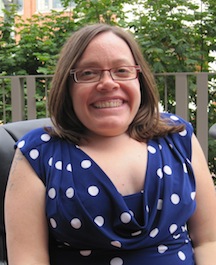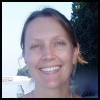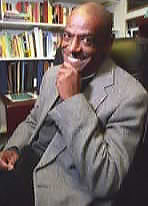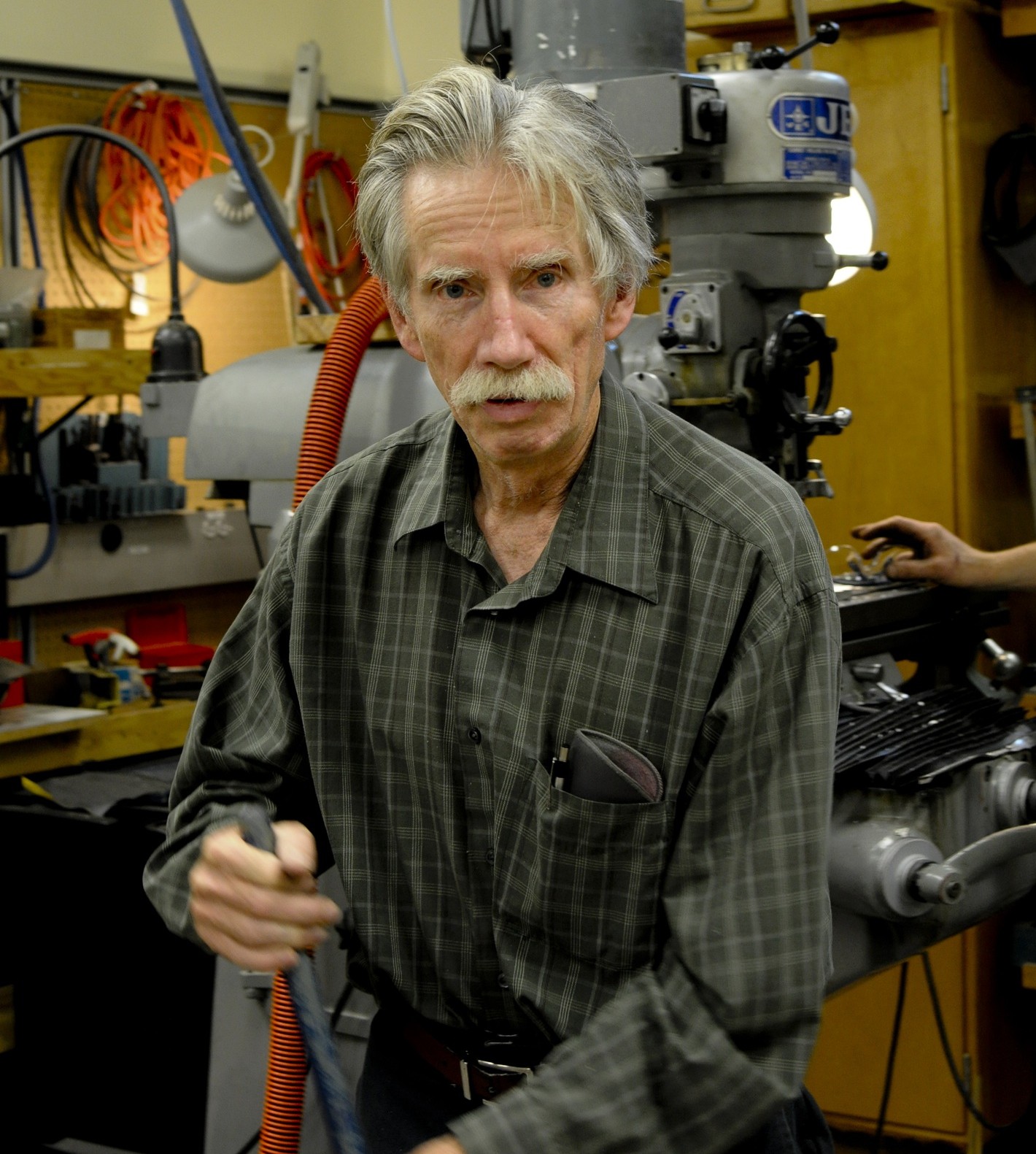First, I must confess. Due to scheduling problems, this entire interview happened in cyber-space through good ol’ University of Puget Sound Webmail. I have never met Professor John Wesley, an Associate Professor of the English Department, who is currently teaching his first semester at Puget Sound. Luckily, Professor Wesley’s training makes him well-equipped to express himself eloquently and wittily through the written word. Professor Wesley also has the distinction of being the resident professor at Trimble Hall. This means his family, which includes three small children that you may have noticed running around campus, live in the dorm, sharing the laundry room with his students. Please read below for more details of Professor Wesley’s escapades in the laundry room, his academic influences and aspirations of blockbuster murder mystery stardom.
So. You’re Canadian. How do you like America? What do you miss about Canada?
Canada and the U.S. have a really special relationship. They’re the couple who were hanging out for years as friends only to realize they were in love the whole time. They have their differences, but mostly they hug a lot, and laugh and cry together and engage in free trade. But we like America for other reasons, too. We have family and friends in Washington, and we’re west-coasters (our immediate families live just across the border in B.C.), so, after spending the last eight years in Japan, Scotland and Toronto, this has been a welcome and much-desired move
“home.” It’s also a move up the coolness ranking: A Canadian politician once characterized the difference between America and Canada in this way: “Paris, Texas stands as a metaphor for lost dreams; Paris, Saskatchewan just sounds ridiculous.” I don’t mind being ridiculous, but it’s a nice change to be somewhere where dreams can in fact exist, even if to get lost.
How have you settled in at Puget Sound? What has surprised you?
Very well, I think. Surprises? I guess I’ve been pleasantly surprised by the level of engagement from students here, not only in the classroom and with the assigned materials, but also in social initiatives and other extracurricular activities, not to mention part-time jobs. This is a lively community of really great students, and I’m proud to contribute to it.
Are there any major differences between the campus community here and at other institutions you have worked at or attended?
Puget Sound reminds me a little of the University of St. Andrews, where I studied for the PhD and first started teaching. But I’ve never before experienced so many opportunities for interdisciplinary learning and teaching as I have at Puget Sound. Obviously, this is also a really close-knit community, which is markedly different from those I experienced at UBC and the University of Toronto. Don’t get me wrong; there are pockets of individuals with shared interests at those big research universities, and I was part of a really great Honors program as an undergrad, but generally there’s also a high degree of anonymity in those places that you just don’t get at a residential liberal arts college. It’s all about accountability in mentorship. Students generally perform better when the prof knows who they are.
Tell me a little about your academic specialty.
I’m sometimes asked how it is that Shakespeare could have written the plays he did without a university education; among other things, my research shows exactly how he could have. I wrote my doctoral thesis on the influence of a grammar school education (roughly, from the ages of 6-16) on Renaissance literature, focusing particularly on the relationship between performance and composition in daily classroom exercises. Children in Shakespeare’s day essentially received an education in Latin eloquence and acting. Shakespeare left Stratford grammar school as a teenager with very little in the way of numeracy, but with an education in rhetoric, foreign languages, moral philosophy and classical literature that most grad students in those disciplines would envy today.
Why did you decide to devote your life to being an English professor?
There’s a lot more to life than a job (or so it should be), but I get what you’re asking. I’ve worked enough jobs out of necessity to appreciate how fortunate I am now to labor in my first-choice career. As for why I chose this particular career path, I’ve long held a romantic notion that it all started during a family trip to England when I was about seven years old. We toured the University of Oxford, and I remember seeing a massive old book chained to a desk in the library of Merton College. I was awestruck. I had never seen anything like this. (Years later, I discovered that many libraries do this or used to do this to prevent the theft of valuable reference materials.) And, because I saw this fettered book just after a tour of the Tower of London, with its series of empty chains and shackles once occupied by those long dead, I somehow made a connection between the book at Merton and the ghosts of the Tower. Some of my students call my obsession with literature morbid—particularly when it’s The Faerie Queene—but it really did begin, I think, as a fascination with texts as enshrined voices. That early fascination has gone through a series of academic rites of passage, but it remains as a love of literature and history: literature as history, history as literature.
What would you like to be doing if you were not a professor?
Writing trashy espionage thrillers. You’d buy them at airport kiosks, and I’d be rich, rich, rich. I’d go by a pseudonym, of course, some nom de plume like Jack Storm or Evan Stealth. There’d be a B&W picture of me on the back cover wearing a trench coat and looking slightly weathered (i.e., burdened by my deep knowledge of clandestine affairs). And I’d have hair! Yes. HAIR! Swept back, but also slightly unkempt, like I was just far too brilliant to comb my hair properly. I guess I can still do all that, but where’s the time? More importantly, where’s the expertise?
What are your other hobbies outside of work?
Anything related to soccer. I’ve followed Arsenal FC quite fanatically over the years, which, of late, is akin to a slow and painful martyrdom. I also love to cook. My favorite way to spend a Sunday afternoon is in the kitchen preparing a new recipe, or reinventing an old one. Finally, music. I’ve played guitar for about 20 years; studied classical piano for 10 years; French horn for six years; played jazz trumpet in a band for a couple of years, and timpani for a year. My first musical heroes were Vivaldi, Corelli and Handel. I’ve loved everything baroque ever since.
What is something about you that would shock your students?
I don’t know. Probably lots of things. Maybe none. Here’s a sampling: I once restored a ‘68 VW Karmann Ghia. I’ve eaten raw horse. I used to be athletic (I know, I know). I’m afraid of flying, which sometimes manifests itself as an obsession with aircraft design and specs. The Boeing 747, for me, is the most perfect aircraft ever made, and it hearkens to a time when air travel was still something of an end in itself. Nothing as majestic has been built since; not even that monster porpoise known as the Airbus 380. See, here I go obsessing. Isn’t that shocking?
You are living on campus. How is it living in Trimble? Do the fellow students ever get too rowdy?
The Trimble faculty apartment is actually a pretty sweet deal. It’s cheap, close to work, and my kids love it. LOVE. IT. They have a bigger back yard than any of their friends, and they are just completely in awe of the students. It’s also a great conversation starter, mostly because people are incredulous that we all live there. Here’s my canned excuse: The university offers this apartment as a service to its faculty, and we’re using it as a transition point while we search for a home in Tacoma. It’s not everyone’s idea of a transition point, but it’s ours, and the students have been great about it, and I think we all sort of find the situation bemusing. Nothing like running into your students in the laundry room. “Colors today?” “Yeah.” “See you tomorrow.” “Yeah.” “Is that your sock?” “No.” So far we haven’t had any issues with rowdy students, though on one occasion we had to chase down a group of students intent on taking my five-year-old’s bicycle for a joy-ride. Please, think of my poor shoeless Dickensian children. If you take their wheels, they’ll have to play with coal instead.
TOP THREES:
Last three books you read:
Clive James, “Cultural Amnesia,” Alice Munro, “Who Do You Think You Are?,” Dr. Seuss, “Pale Green Pants With Nobody Inside Them” (I have three little kids; I’ve read this book about 40 times in the last 24 hours).
Favorite three places ever traveled to:
Oh, please let me have four, in no particular order: 1) Tokyo, Japan 2) Strasbourg, France 3) Coonoor, India 4) Glencoe, Scotland.
Three surprises about Tacoma:
1) There’s no aroma, or, at least, I don’t detect one. 2) Point Defiance. Stunning. 3) A really great little culinary scene.
Three things you like about Puget Sound:
1) The students’ willingness to teach me American English 2) The coffee at Oppenheimer and Diversions 3) Tudor Gothic. The consistency in architecture is part of what makes this campus so beautiful.




